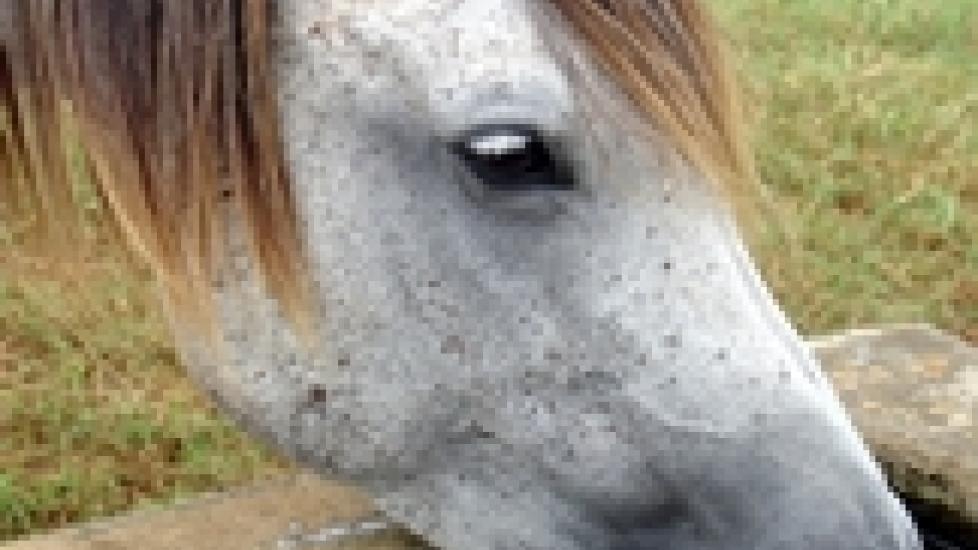Giving Water to Horses After Exercise – Yea or Neigh?
Similar to human medicine, there are a lot of myths, or old wives’ tales, in veterinary medicine. Some are based on truth, but then generalized to a level that distorts practicality. Others are just plain wrong the whole way around.
When the myth is benign, like the saying that touching a toad will give you warts, they’re pretty innocent, and sometimes laughable. When a misunderstanding stemming from a medical myth can actually harm a patient, however, that’s when I become concerned and strive to debunk it.
One example of a potentially dangerous old wives’ tale is the advice to never give a horse water after strenuous exercise, as it will cause the horse to colic. Please let me dispel this erroneous statement. One should never completely withhold water from any animal after strenuous exercise.
Sometimes when I think about these myths I wonder where they came from. Who came up with some of these things? I have a theory about the horse and water myth; I think at least one of its perpetuators lies in literature.
Do any readers recall the beloved story of Black Beauty? Written by Anna Sewell and published in 1877, this is a wonderful story of horses in Victorian England, as narrated from the perspective of the horse that is the title character. Although this story brought attention to many animal cruelty practices of the time (the harsh life and treatment of carriage horses, use of the bearing rein, the “disposable” way many people used horses, to name a few), and actually brought about some changes in animal welfare, like the abolishment of the bearing rein, there is one scene I blame for giving life to my above-mentioned myth.
In this scene, Black Beauty is ridden hard through the night in a storm. Brought back to the stable by his naïve young rider without a proper cool down, the horse is left steaming in his stall and given ice-cold water from a bucket to gulp down. Later that night, Black Beauty colics and it is implied that the cold water was the culprit.
Like human athletes, after strenuous exercise a horse must be allowed to cool down properly. This allows the heart to gradually return to a normal resting rate and keeps the muscles slowly moving to flush out lactic acid that builds up during intense exercise. Horses can also be subject to a nasty condition called “tying up.” Medically known as exertional rhabdomyolysis, this condition occurs when muscle cells are stressed metabolically to the point of breakdown, releasing myoglobin into the blood, which is extremely toxic to the kidneys. Severe dehydration can also cause colic-like signs in an exhausted horse, as vital electrolytes are depleted through sweat. If the Black Beauty scenario occurred in real life, I’d bet he was going through one of the above situations caused by improper cooling, dehydration, and/or overuse, not the water he was given.
So what are you supposed to do with a hot horse after exercise? Firstly, cool the horse down. This means at the minimum walk the horse until his nostrils are not flaring and his heart rate is down to normal (around 40 beats per minute). Secondly, absolutely offer water — ideally about a half bucket to start with, and then increase the amount; the horse must replenish the fluids he has lost. Top equine athletes can also benefit from electrolytes.
Thirdly, be aware of the ambient temperature. If it’s hot out and the horse is extremely sweaty, hose him down to help the cooling process. If it’s cold out and the horse is sweaty, keep walking him until he’s dry and then place a “sweat blanket” on him, which keeps him warm while allowing his body to breathe.
Now that we all know the low-down on how to deal with hot horses, this brings to mind another old saying: You can lead a horse to water but you can’t make him drink. That one I can neither confirm nor deny. Perhaps an incredibly stubborn horse somewhere in the past inspired that phrase?

Dr. Anna O’Brien
Image: Giancarlo Liguori / Shutterstock
